The United States has a maternal mental health crisis. Mental health conditions are the most common complications of pregnancy and birth. Birthing people have a 20% chance of being diagnosed with a tremendous range of mental health issues postpartum, including depression, anxiety, bipolar disorder, obsessive compulsive disorder, substance abuse disorders, post-traumatic stress disorder, and more. That’s, of course, if birthing people are able to access critical care they need postpartum — typically, there is a single visit to the doctor six weeks after birth to check on healing, and in some, but not all, cases, a postpartum depression screening. Those who are screened and diagnosed as experiencing maternal mental health challenges are still at risk, as 75% of those diagnosed will receive no treatment.
Perhaps the most terrifying statistic is this: suicide and overdoses are the leading cause of death during the first year postpartum and 100% of those deaths are preventable.
There’s no question that the lack of guaranteed parental leave is the top contributor to this, as it weaves among all of the reasons and challenges birthing people experience postpartum. They lack support, they lack sleep, they lack time for their bodies and brains to heal after nine months of growing a child and months after their bodies experienced trauma to birth them, and they don’t eat well. These do and do not also account for social, cultural, and financial barriers that come into play and they do and do not take into account even more recent events such as the pandemic and how it impacts access to child care and to friends and family who may have otherwise helped in sharing the work of childrearing. The United States is not a country where children or families take precedence in policy, except where it concerns the body of the pregnant person when gestating.
I experienced a traumatic birth and because of that, got lucky. I had access to two additional postpartum checkups that most birthing folks do not get. It wasn’t until the six week visit, though, where I was asked about my mental health. The nurse had me fill out a survey which noted to keep an eye on my mental health because signs pointed to potential challenges down the road. But nothing was done and no conversation actually had. A big reason? I was among the 27% who begin pregnancy with a diagnoses of mental illness, and I stayed on my medication throughout.
Things have not been smooth and steady. I’ve experienced significant changes in how my brain works, which impacts my mental well-being; almost a year postpartum now, I recognize this in myself and have been working to find real solutions to help me along the way. I figured out early on, for example, that breastfeeding caused me tremendous mental problems, among them anxiety and depression especially. I disliked the way I felt resentment in feeding my child and that, paired with several other layers of unhealthy thoughts, led me to making the choice not to continue and to turn to formula. It made a significant difference.
I’m privileged because of the work I’ve done on my mental health more broadly, as well as my knowledge of the resources out there. But there were many days I didn’t know how I’d get through, and there are still days this is my reality. The pandemic, the lack of childcare, the lack of human companionship outside the home because of a child ineligible to be vaccinated, all piled on top of the chemical changes that happened, make me worry so much for those who don’t have these pools of knowledge and experience from which to pull.
It’s not going to get better until there’s monumental government change.
That all said, learning about this detrimental problem is an important step in both understanding its magnitude, understanding the ways it plays out in expected and completely unexpected patterns for each person, and how you can help yourself or someone you love who may be struggling. None of these are a substitution for help via a medical or mental health professional. It’s our responsibility and burden as individuals to advocate for ourselves in those spaces, but through knowledge gained in reading and learning about how widespread (and under-treated) the problems are, we better have tools to do just that. Those tools for advocacy behind an office door are the same ones necessary to spark political change.
And yes, paternal/non-birthing person mental health is impacted by such a huge life event. They, too, can suffer, but because of how little knowledge, awareness, and action there is for birthing people on the manner, you can only imagine how this is even further under the radar (and we can add gender norms and socialization as contributing factors, too).
This is a paltry list, despite length, and it’s one that needs more titles from a wide range of people to even begin to scratch the surface of the reality of this mental health crisis. It’s very white and relies on gendered language surrounding birthing people (we still use “maternal” mental health, despite the fact not all birthing people are mothers). Though these aren’t books, the Maternal Mental Health Leadership Alliance offers an array of resources for individuals, including several for BIPOC people specifically.
Adventures with Postpartum Depression by Courtney Novak
Though this memoir tackles difficult realities associated with postpartum depression, OCD, despair, guilt, and anxiety, Novak’s personal story is also packed with humor. Not only does she share her experiences, she offers up what helped her manage them and use them to help her become the mom she hoped to be.

Back In Six Weeks by Sharon Gerdes
Set in 1980, this novel follows a woman named Kate who vowed that, after having her first child, she’d be back to work in six weeks. That didn’t happen, as she struggled with postpartum psychosis. Though this book looks at a historical moment in what was understood about maternal mental health in the ’80s, it’s based on the real experiences of going from an otherwise healthy person to one with severe mental illness postpartum.
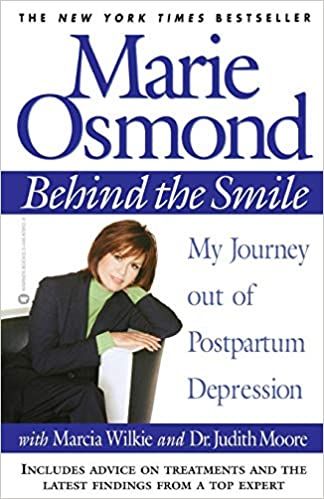
Behind the Smile: My Journey Out of Postpartum Depression by Marie Osmond with Marcia Wilkie and Dr. Judith Moore
I know I was too young to remember when Marie Osmond — yes, that one — went public with her story of postpartum depression. When she did so in 2002, it shone a huge light on a challenge so many struggle with but don’t have the language, voice, or confidence to speak about (when you’re ill, your brain will give you every bit of evidence about how wrong you are about it). Osmond’s experience happened after giving birth to her seventh child and this book is a collaboration with her doctor to tell her story and to talk about what helped her through it.
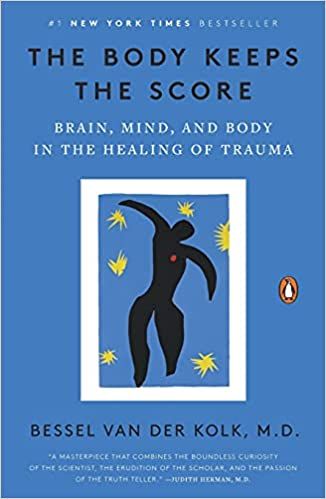
The Body Keeps the Score by Bessel van der Kolk
Any exploration of mental health should begin with this groundbreaking, important work about the ways the human body holds onto its experiences. Trauma lives in the skin and bones and when triggered, can set off a chain reaction of mental health challenges. When it comes to a birthing person’s mental well-being, the link between the physical experience and mental one is undeniable.
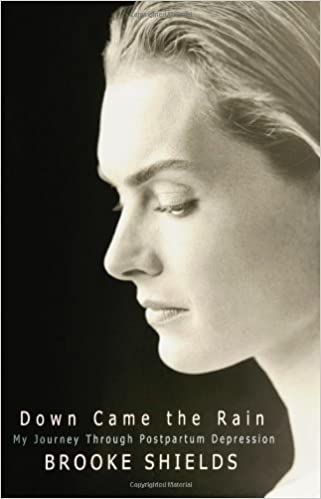
Down Came the Rain: My Journey Through Postpartum Depression by Brooke Shields
It’s easy to write off celebrity memoirs as cash grabs. But in some cases, it’s celebrity memoirs that really crack open conversations about difficult topics. Brooke Shields talks candidly in her story about experiencing postpartum depression and what she did while living through it and trying to balance being a good mother, too.
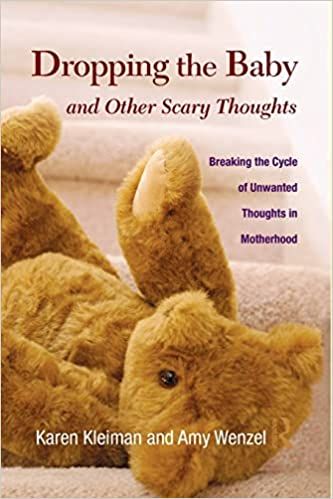
Dropping the Baby and Other Scary Thoughts: Breaking the Cycle of Unwanted Thoughts in Motherhood by Karen Kleiman and Amy Wenzel
Kleiman is one of the most prolific writers on the topic of maternal mental health, with several decades of working with and researching this demographic as a therapist. This book, cowritten with Wenzel, is a look at the common and not-so-common intrusive thoughts that emerge postpartum. It’s a deeply compassionate read.

Eyes Without Sparkle: A Journey Through Postnatal Illness by Elaine Hanzak
Hanzak offers a first-hand look at the experience of puerperal psychosis, which occurs in severe forms of postpartum depression. In addition to being a close account, it explores the sorts of treatments and interventions that helped Hanzak, as well as those which did not.
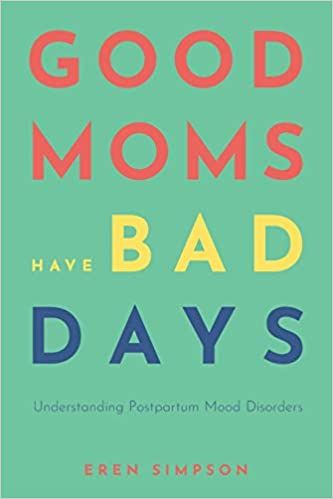
Good Moms Have Bad Days by Eren Simpson
This guidebook, published quite recently, is meant to help postnatal people understand the changes in their brains and their feelings, as well as determine where and how they might best seek treatment. It’s also meant to serve as a tool to encourage those who struggle — or those who care about others who are struggling — to help prioritize the discourse and treatment of maternal mental health.
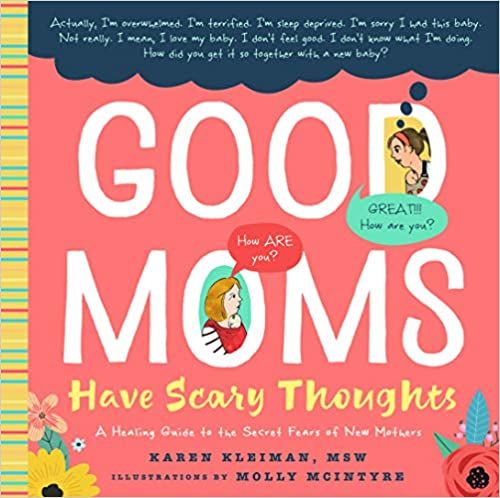
Good Moms Have Scary Thoughts: A Healing Guide to the Secret Fears of New Mothers by Karen Kleiman and Molly McIntyre
Sometimes what a new parent needs is the reminder they’re not alone in their mental challenges, be they illnesses or the result of such a monumental life change. Kleiman and McIntyre deliver that in this collection of advice, insight, art, and more about breaking down the stigmas surrounding maternal mental health. This guide is also packed with small, effective activities to help soothe worried thoughts.
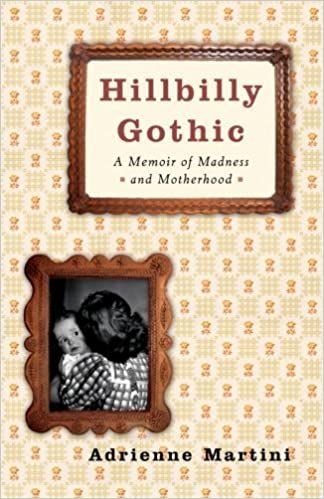
Hillbilly Gothic: A Memoir of Madness and Motherhood by Adrienne Martini
It looks like this memoir is out of print, but if you can track it down in a used format or via library, it’s worth it. Martini’s story is of a legacy of postpartum depression in her family and how those experiences played out in their Appalachian background. Martini’s experience led to her being institutionalized, and this look into her life and story is powerful for what it offers about access and stigma around mental health in communities that aren’t middle or upper middle class.
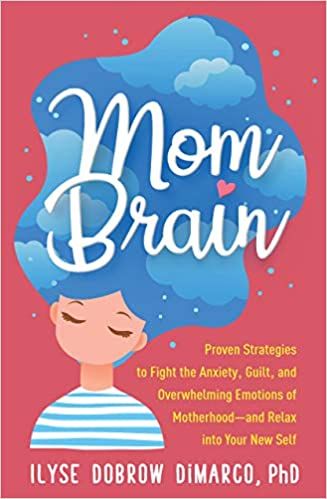
Mom Brain: Proven Strategies to Fight the Anxiety, Guilt, and Overwhelming Emotions of Motherhood by Ilyse Dobrow DiMarco
Though this book doesn’t focus exclusively on postpartum depression, anxiety, or other specific illness, it’s an excellent resource for understanding the science behind brain changes after having a baby. There are research-baked ideas for managing and navigating those changes, and it will be helpful for helping identify when a normal change goes to a place where it needs further help and support.
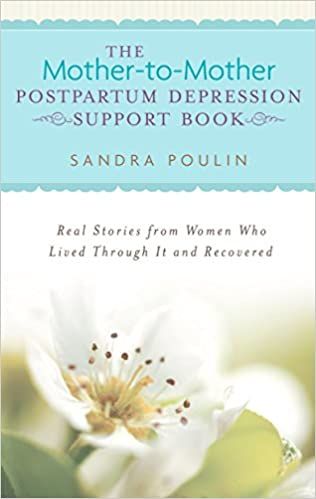
The Mother-to-Mother Postpartum Depression Support Book by Sandra Poulin
If what you’re interested in a conversational approach to discussing mental challenges postpartum with other birthing people who’ve been there, this collection of stories and insights from others who have been there should be on your to-read.

Parental Mental Health: Factoring in Fathers by Jane I. Honikman and Daniel B. Singley
This is a short book, but it’s newer and one that begins a vital conversation about fatherhood and the ways fathers experience mental health shifts in their new roles. It’s a whole family approach, meaning it discusses the roles all members of a new family play between and among each other, as well as everyone best supports their respective mental health experiences.
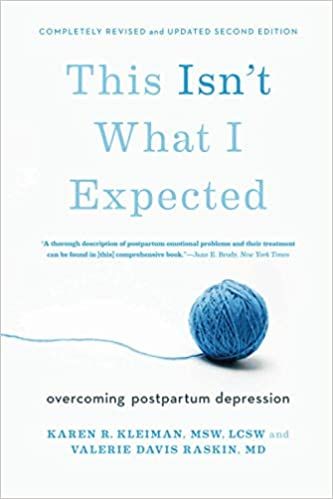
This Isn’t What I Expected by Karen Kleiman and Valerie Davis Raskin
Earlier in this list, I mentioned Kleiman as a particular expert in this field. This book, cowritten with Raskin, is one of the definitive guides to postpartum depression. It’s compassionate and helps distinguish between depression and the also extremely common, but not dangerous, baby blues that come postpartum. This self-help program is evidence based and has been a potent tool for so many needing the tools and support to navigate postpartum depression.
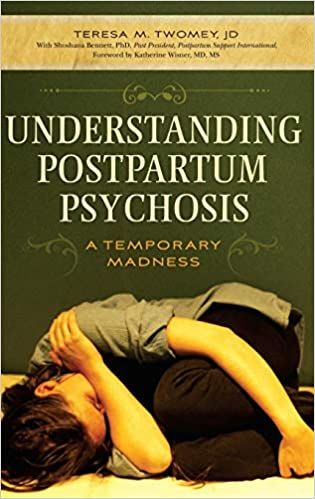
Understanding Postpartum Psychosis: A Temporary Madness by Teresa M. Twomey
What is postpartum psychosis and what does it feel like to experience? This is an insider’s look at the temporary illness, how it develops, and ways it can be treated. What makes psychosis especially challenging is that, like many maternal mental health issues, it’s shrouded in secrecy and guilt; in the case of psychosis, a side effect is paranoia, making it even harder to accept as a lived experiencing needing immediate help for relief.
Source : Mad As A Mother: Reading To Understand The Maternal Mental Health Crisis














